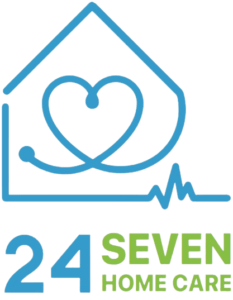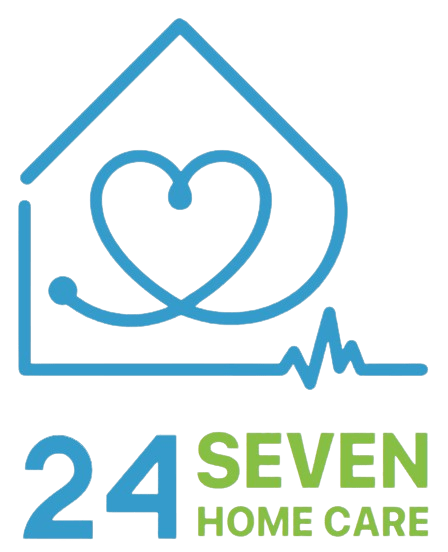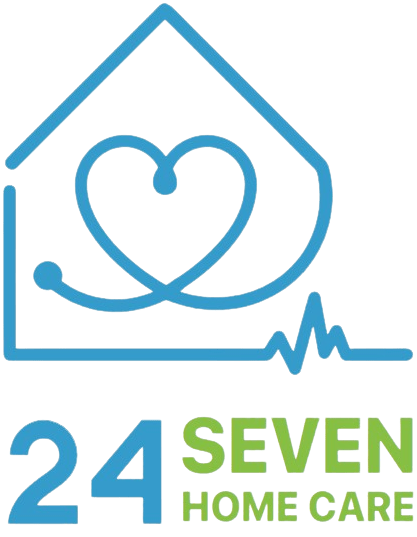Home Care in Dubai: A Comprehensive Guide to Quality Care
Table of Contents
Dubai, renowned for its magnificent high-rises and lavish way of living, is increasingly being acknowledged for its outstanding healthcare provisions. The city has seen a notable trend towards domiciliary healthcare recently, providing individuals with a tailor-made and convenient means of accessing health services. This detailed guide will explore home healthcare in Dubai, touching on its advantages, offerings, the governing legal structure, and how healthcare is being transformed in this vibrant metropolis.
At 24 Seven Home Health Care Center, we take pride in offering a comprehensive array of home healthcare services in Dubai, which includes doctor on-call, house visit doctors, and medical consultations in the comfort of your home or hotel. Our team of expertly trained licensed healthcare professionals is available to attend to our patients’ needs promptly, reaching any location in Dubai within 30 minutes, around the clock, every day of the week, throughout the year.
The Evolution of Home Care in Dubai
Over the last few decades, the healthcare environment in Dubai has transformed significantly. What was once a system largely focused on hospitals has shifted towards prioritizing the needs and care of patients directly, especially through home healthcare services. This transformation aligns with a worldwide movement towards healthcare that is both more accessible to the patient and designed to be more user-friendly.
The Driving Factors Behind the Growth of Home Care in Dubai
Dubai is experiencing an increase in its aging population, which in turn is spurring a higher need for medical services. The option of home healthcare provides the elderly the opportunity to obtain medical care without leaving the comfort of their homes.
As chronic illnesses become more prevalent, there’s a mounting necessity for their ongoing surveillance and care, services that home healthcare can provide effectively.
Thanks to Dubai’s dedication to technological innovation, home healthcare has incorporated sophisticated medical technology. This integration makes home healthcare a practical and effective choice.
The Benefits of Home Care in Dubai
Personalized Care
In Dubai, a key benefit of receiving care at home is the bespoke attention provided to patients. By crafting care plans that meet the specific requirements of each individual, patients are ensured to receive the appropriate care precisely when they need it.
Convenience and Comfort
By opting for home-based care, individuals avoid the commute to medical centers, thus saving time and lowering stress levels. This approach also allows them to stay in the comfort of familiar environments, which plays a significant role in enhancing their emotional health.
Reduced Healthcare Costs
Receiving treatment at home for chronic illnesses might be a less expensive option than staying in a hospital, particularly for conditions that necessitate continuous care. By opting for in-home care, patients can sidestep the costs associated with a hospital stay, including room fees and extra service charges.
Faster Recovery
Research indicates that the recovery process speeds up for patients who are cared for in their own homes. The lack of stressors associated with hospitals, alongside the comfort found in familiar surroundings, plays a crucial role in enhancing the pace of recovery.
Lower Risk of Infections
Hospitals are often hotspots for the spread of infectious diseases. Opting for home-based care helps individuals minimize their contact with harmful germs, thereby reducing the likelihood of contracting infections associated with healthcare settings.
Services Offered in Home Healthcare
In Dubai, a broad range of medical needs can be met through home healthcare services. These services are delivered by a dedicated team that includes nurses, doctors, therapists, and support personnel. The following are some of the services they offer:
Nursing Care
Licensed nurses offer a variety of healthcare services, such as managing wounds, administering medications, providing therapy through intravenous routes, and keeping an eye on vital health indicators.
Physical Therapy
Physical therapists help patients regain mobility, strength, and independence through exercises and rehabilitation programs.
Occupational Therapy
Occupational therapists assist patients in improving their daily living skills, focusing on tasks such as dressing, bathing, and cooking.
Medical Equipment and Supplies
Home healthcare providers in Dubai often supply medical equipment such as oxygen concentrators, ventilators, and mobility aids to ensure patients’ safety and comfort.
Palliative and Hospice Care
Patients with terminal illnesses can receive compassionate end-of-life care and symptom management in the comfort of their homes.
Chronic Disease Management
Home healthcare teams specialize in managing chronic conditions like diabetes, hypertension, and heart disease, ensuring patients receive consistent care and education.
Regulation and Accreditation
Dubai’s dedication to maintaining high standards in healthcare is evident in its regulatory system for providers of home healthcare services. The licensing and strict accreditation processes for healthcare establishments, inclusive of those offering home healthcare, are meticulously managed by both the Dubai Health Authority (DHA) and the Dubai Healthcare City Authority (DHCA).
In Dubai, to maintain a high standard of care, home healthcare providers are required to adhere to rigorous regulatory criteria, which encompass qualifications of the staff, safety measures, and upkeep of the equipment. Being accredited by esteemed bodies such as the Joint Commission International (JCI) provides an additional level of assurance regarding quality.
Challenges and Future Trends
Home healthcare in Dubai provides many advantages but also encounters various obstacles as well as prospects for expansion.
Workforce Shortages
With the increasing need for home healthcare services, there’s a growing demand for a more extensive and properly trained workforce. To meet this demand, Dubai is proactively investing in the education and training of healthcare professionals.
Technological Integration
The incorporation of telemedicine and wearable devices into domestic healthcare services is anticipated to grow, allowing for continuous monitoring and virtual consultations with medical professionals.
Public Awareness
Increasing public awareness about the benefits of home healthcare and its availability is crucial for its continued growth in Dubai.
Partnerships and Collaborations
Collaborations between public and private sectors, along with international healthcare organizations, can further enhance the quality and reach of home healthcare services.
Certainly, let's delve deeper into some of the key aspects of home healthcare in Dubai, including the regulatory framework, challenges, and future trends.
Regulatory Framework
Dubai’s commitment to healthcare quality and patient safety is exemplified through its rigorous regulatory framework for home healthcare providers. The primary regulatory bodies overseeing healthcare in Dubai include:
Dubai Health Authority (DHA):
The DHA holds the responsibility for issuing licenses to and supervising healthcare establishments, which include providers of home healthcare services. It sets rigid standards for the caliber of care provided, the qualifications of the personnel, and the quality of equipment being used. Adherence to these standards is essential for the acquisition and retention of a license for operation.
Dubai Healthcare City Authority (DHCA):
Within the Dubai Healthcare City (DHCC) free zone, acknowledged as a premier center for medical excellence in the region, the Dubai Healthcare Authority (DHCA) takes on a critical role by overseeing the regulation of healthcare establishments. Providers of home healthcare services situated in DHCC are required to comply with the standards and regulations established by the DHCA.
Joint Commission International (JCI):
In Dubai, numerous providers of home healthcare services pursue recognition from JCI, an internationally esteemed organization for healthcare accreditation. By securing this accreditation, they prove their dedication to adhering to global norms for quality in healthcare and ensuring patient safety.
Dubai Accreditation Center (DAC):
DAC serves as an accreditation entity, evaluating healthcare providers on their compliance with global standards. This accreditation confirms an additional layer of quality control. Together, these oversight organizations strive to ensure that home healthcare services in Dubai attain the highest quality, safety, and professional standards. Through ongoing inspections, audits, and checks for compliance, these standards are vigorously maintained.
Challenges and Opportunities
Workforce Shortages

A significant challenge confronting domestic healthcare in Dubai is the lack of trained healthcare workers. With the increasing demand for services catered to home healthcare, there’s an urgent need for additional nurses, therapists, and ancillary staff. To tackle this issue, Dubai has committed to enhancing healthcare education and professional training programs, both within its borders and abroad. Moreover, to draw skilled healthcare workers to the region, various incentives are being provided.
Technological Integration
Dubai is making strides in the healthcare field by prioritizing innovation, particularly through the expansion of telehealth services and the adoption of wearable technologies. Telehealth provides a platform for patients to consult with medical professionals from a distance, enhancing the accessibility of medical services, particularly for individuals living in distant regions.
Meanwhile, wearable technologies, including smartwatches and devices that monitor health, allow for the continuous monitoring of vital health indicators. Such technological advancements not only improve the standard of healthcare but also facilitate the early identification of potential health problems and encourage individuals to actively manage their health.
Public Awareness
Boosting awareness among the public on the importance of home healthcare is crucial for its further development. A significant number of individuals in Dubai might not have a complete understanding of the diverse services home healthcare providers deliver or the benefits of receiving healthcare services in the comfort of their own homes. Initiatives focused on education, outreach within communities, and partnerships with primary care doctors could effectively heighten awareness and underscore the value of home healthcare.
Partnerships and Collaborations
Collaborative efforts between public-private sectors and global health organizations can significantly improve the quality and accessibility of home healthcare services in Dubai. Such partnerships may result in sharing of best practices, enabling access to cutting-edge health technologies, and the creation of targeted programs for distinct health conditions.
The Future of Home Healthcare in Dubai
The future of home healthcare in Dubai looks promising, with several exciting trends on the horizon:
Personalized Care Plans
Progress in artificial intelligence and data analytics will empower healthcare providers to devise care plans that are exceptionally customized for each patient. These personalized plans will consider the patient’s medical history, genetic predispositions, and lifestyle choices to ensure that the treatments are specifically suited to meet the individual’s health needs.
Enhanced Telehealth
It is anticipated that telehealth will become an increasingly common element of home healthcare offerings. Patients will gain the convenience of accessing healthcare professionals through video calls, remote health tracking, and telemedicine services. This shift aims to diminish the necessity for face-to-face appointments and reduce waiting periods.
IoT and Wearable Health Tech
The evolution of the Internet of Things (IoT) alongside wearable medical technologies is poised to enhance the continuous tracking of essential health indicators. Such advancements will allow health-related information to be directly sent to medical professionals in real-time, facilitating prompt action and preventative healthcare measures.
Chronic Disease Management
As the incidence of chronic illnesses continues to climb, the role of in-home healthcare becomes increasingly vital in managing these conditions. Continuous monitoring and timely care for individuals suffering from diseases such as diabetes, hypertension, and heart disease offer significant advantages, contributing to an enhancement of life quality for these patients.
In Dubai, the home healthcare sector is leading a significant transformation in how medical care is delivered, focusing on patient-centric, accessible, and superior-quality services. This shift is supported by stringent regulatory measures, continuous investments in medical training and digital health innovations, and efforts to enhance public health consciousness. As Dubai progresses in becoming an international center for healthcare, home-based medical services will play a pivotal role in its health system, guaranteeing that individuals receive top-notch treatment in their own living spaces.
Certainly, let's break down the key points discussed in the expanded section:
Regulatory Framework
Dubai places a strong emphasis on maintaining high standards of healthcare quality and patient safety. To ensure this, there are several regulatory bodies overseeing healthcare services in the city:
Dubai Health Authority (DHA):
DHA takes on the role of authorizing and overseeing health facilities, which encompasses providers of home health services. They define comprehensive standards that cover the quality of healthcare services, the credentials required for healthcare personnel, and the criteria for equipment. Adhering to these standards is crucial for the acquisition and retention of a healthcare facility’s operational license.
Dubai Healthcare City Authority (DHCA):
The Dubai Healthcare City Authority (DHCA) is responsible for supervising healthcare establishments within the Dubai Healthcare City (DHCC) free zone, renowned as a center for medical excellence in the area. Providers of home healthcare services in DHCC are required to comply with the standards and regulations established by the DHCA.
Joint Commission International (JCI):
Numerous healthcare providers for homes in Dubai are in pursuit of accreditation from JCI, an organization recognized worldwide for healthcare accreditation. Securing accreditation from JCI is indicative of a healthcare provider’s adherence to global standards in quality and safety for patients. This accreditation serves as a testament to their unwavering commitment to providing care of the highest caliber.
Dubai Accreditation Center (DAC):
DAC serves as an additional accreditor, assessing healthcare providers by their compliance with global benchmarks. Being accredited by DAC provides another layer of assurance about the quality, confirming that healthcare establishments consistently meet elevated standards of patient care.
In Dubai, the existence of regulatory entities, coupled with frequent inspections, audits, and adherence checks, guarantees that providers of home healthcare services meet the highest standards of quality and observe all safety and ethical guidelines.
Challenges and Opportunities
Workforce Shortages:
As the need for services in home healthcare grows, there is a pressing requirement for additional professional healthcare staff, including nurses, therapists, and auxiliary personnel. To tackle this issue, Dubai is channeling resources into the development and enhancement of healthcare training and education programs, both within its borders and abroad. Furthermore, the region is putting forth attractive offers to entice competent healthcare workers to come and work there.
Technological Integration:
Dubai demonstrates its dedication to innovation through its embrace of telehealth services and the use of wearable technologies. With telehealth, individuals can consult healthcare providers from afar, enhancing the accessibility of medical care, especially for those in isolated regions. Wearable devices, including smartwatches and devices that monitor health, allow for the continuous observation of essential health indicators. These advancements in technology not only improve the standard of healthcare but also enable individuals to actively manage their own health.
Public Awareness:
Boosting public understanding of the value that home healthcare provides is essential for its future expansion. A significant number of individuals in Dubai might not have a complete grasp of the available services or the benefits that come with getting care in their own residences. Initiatives to educate the public, outreach efforts in the community, and partnering with primary care physicians could aid in enhancing awareness and underscoring the advantages of home healthcare services.
Partnerships and Collaborations:
Partnerships among public and private sectors, as well as with global health organizations, can improve the access to and quality of care provided by home healthcare services. Through these collaborations, there can be an exchange of knowledge, the opportunity to utilize cutting-edge medical technologies, and the creation of tailor-made programs aimed at treating particular health issues.
The Future of Home Healthcare in Dubai
Looking ahead, several exciting trends are expected to shape the future of home healthcare in Dubai:
Personalized Care Plans:
Advancements in data analytics and artificial intelligence will enable healthcare providers to create highly personalized care plans for patients. These plans will consider an individual’s medical history, genetic factors, and lifestyle, ensuring that the care provided is tailored to the patient’s unique needs.
Enhanced Telehealth:
Telehealth will become even more integrated into home healthcare services. Video consultations, remote monitoring, and telemedicine platforms will provide patients with convenient access to healthcare professionals. This reduces the need for in-person visits and long wait times.
IoT and Wearable Health Tech:
The Internet of Things (IoT) and wearable health technology will continue to evolve, enabling continuous monitoring of vital signs and health parameters. This real-time data can be transmitted to healthcare providers, allowing for early intervention and proactive care.
Chronic Disease Management:
Given the rising prevalence of chronic diseases, home healthcare will play a crucial role in chronic disease management. Patients with conditions like diabetes, hypertension, and heart disease will benefit from continuous monitoring and timely interventions, improving their quality of life.
To encapsulate, Dubai is advancing substantially in the realm of home healthcare, emphasizing on ensuring excellence, ease of access, and care focused around the patient. The foundational regulations, investment in educational pursuits and technological advancements, along with initiatives aimed at elevating public consciousness, serve as the pillars of this noteworthy shift. As Dubai forges ahead in its journey to become a pinnacle of global healthcare, home healthcare persists as a crucial element within its healthcare framework, offering patients top-notch care within the serenity of their own residences.
Home healthcare in Dubai is revolutionizing the way healthcare is delivered in this vibrant city:
Centered around personalized attention, ease of access, and affordability, it presents a viable option compared to the conventional in-hospital treatment. As Dubai’s healthcare framework undergoes transformation, home healthcare is set to become a crucial element in ensuring patients are accorded top-notch care within the confines of their homes. With the backing of regulations, advancements in technology, and increased public awareness, the prospects for home healthcare in Dubai look extremely bright.
FAQs related to "Home Care in Dubai: A Comprehensive Guide to Quality Care":
What types of home care services are available in Dubai?
Home care services in Dubai can be covered by insurance, but it depends on the specific insurance policy. Some health insurance plans offer coverage for certain types of home care services, especially medical and nursing care. It is essential to review your insurance policy and contact your insurance provider to understand the extent of coverage available for home care services.
How do I choose the right home care provider in Dubai?
Choosing the right home care provider involves several important steps:
- Assess Needs: Determine the specific type of care needed (medical, personal, rehabilitation, etc.).
- Research: Look for licensed home care providers with good reputations. Check reviews and testimonials.
- Verify Credentials: Ensure that the caregivers are certified and have undergone proper background checks.
- Consultation: Arrange a consultation to discuss care needs and see if the provider is a good fit.
- Cost: Compare costs of services and check if they are covered by insurance.
- Trial Period: If possible, arrange for a trial period to assess the quality of care provided.
Are home care services in Dubai covered by insurance?
Choosing the right home care provider involves several important steps:
- Assess Needs: Determine the specific type of care needed (medical, personal, rehabilitation, etc.).
- Research: Look for licensed home care providers with good reputations. Check reviews and testimonials.
- Verify Credentials: Ensure that the caregivers are certified and have undergone proper background checks.
- Consultation: Arrange a consultation to discuss care needs and see if the provider is a good fit.
- Cost: Compare costs of services and check if they are covered by insurance.
- Trial Period: If possible, arrange for a trial period to assess the quality of care provided.
What qualifications should home care staff have in Dubai?
Home care staff in Dubai should have appropriate qualifications and training relevant to their roles:
- Nurses: Registered nurses should have a valid nursing license and experience in providing home care.
- Caregivers: Personal caregivers should have certifications in caregiving and basic first aid training.
- Therapists: Physical, occupational, and speech therapists should have the necessary degrees and licenses to practice.
- Background Checks: All home care staff should undergo thorough background checks to ensure safety and reliability.
How do home care services ensure quality and safety?
Quality and safety in home care services are ensured through several measures:
- Regulations: Home care providers must adhere to local health regulations and standards set by health authorities.
- Training: Continuous training and professional development for caregivers and medical staff.
- Monitoring: Regular monitoring and supervision of care services to ensure compliance with care plans.
- Feedback: Collecting feedback from clients and families to improve services.
- Emergency Protocols: Having clear protocols in place for emergencies and ensuring caregivers are trained to handle various situations.
What are the benefits of opting for home care in Dubai?
Opting for home care in Dubai offers numerous benefits:
- Comfort: Receiving care in the comfort of one’s own home.
- Personalized Care: Tailored care plans to meet individual needs.
- Cost-Effective: Often more affordable than hospital or nursing home care.
- Independence: Allows individuals to maintain a level of independence and normalcy.
- Family Involvement: Family members can be more involved in the care process.
- Convenience: Reduces the need for frequent hospital visits and allows for a more flexible schedule.
Get Better With 24 Seven Home Care
Healing & Wellness At Your Doorstep
+971 50 8988247/+971 800 24724




